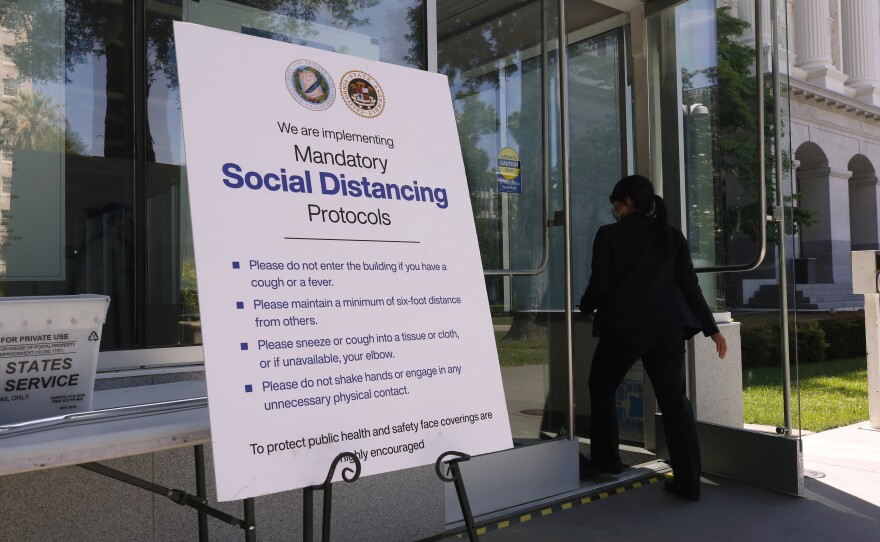A person who works at the California Capitol has tested positive for the coronavirus, prompting the Senate to cancel Wednesday's session during a critical final week when lawmakers must consider hundreds of measures that face a Monday deadline.
Senate President Pro Tempore Toni Atkins said the infected person is a “Senate family” member and promised the chamber “will use the tools available to us to make sure that we can complete necessary work prior to August 31.”
The Senate changed its rules earlier this year to allow for remote voting, though Atkins did not say if that was among the tools that would now be used.
Secretary of the Senate Erika Contreras said she could not confirm whether the infected person was a lawmaker or a legislative staffer. The Senate had planned to take up several police reform bills that lawmakers sought following George Floyd's death in Minneapolis in May.
The Assembly was still meeting.
The Senate learned of the positive case Wednesday, Atkins said in a statement. That person had been in the Capitol this week, so Atkins canceled the daily session “while we conduct immediate contact tracing and inform anyone who may have been exposed.”
She said the Legislature has been taking “every precaution," including requiring masks, social distancing and regular cleaning. Atkins added that the Senate will continue its work “when we have completed public health protocols to ensure that the risk of exposure has been eliminated.”
The Senate changed its rules earlier this year to allow for remote voting. But legal questions remain over the validity of those votes. Several lawmakers have participated in sessions remotely, but no one has voted on final bills. A few have voted remotely in committee hearings.
The Assembly has taken a different step and is allowing proxy voting. Under that process, absent Assembly members will send their votes to the chief clerk by at least 5 p.m. the day before a vote. On the day of the vote, one of four legislative leaders will formally cast the vote on behalf of the absent lawmaker.
The California Legislature has already been delayed twice because of the coronavirus. The first delay happened in March at the start of the pandemic and lasted for two months. The second was in July after seven people in the Capitol tested positive, including two lawmakers.
Another delay could mean lawmakers will run out of time to resolve high-profile issues, including a proposal to extend eviction protections for people affected by the economic fallout from the pandemic. The protections are set to expire on Sept. 2.
Legislatures nationwide have struggled to contain the virus while conducting in-person meetings to pass bills, a problem compounded by the questionable legality of remote meetings.
In Mississippi, 49 lawmakers tested positive for the virus, with at least four being hospitalized. In Michigan, the Legislature canceled meetings this month after a senator tested positive.





